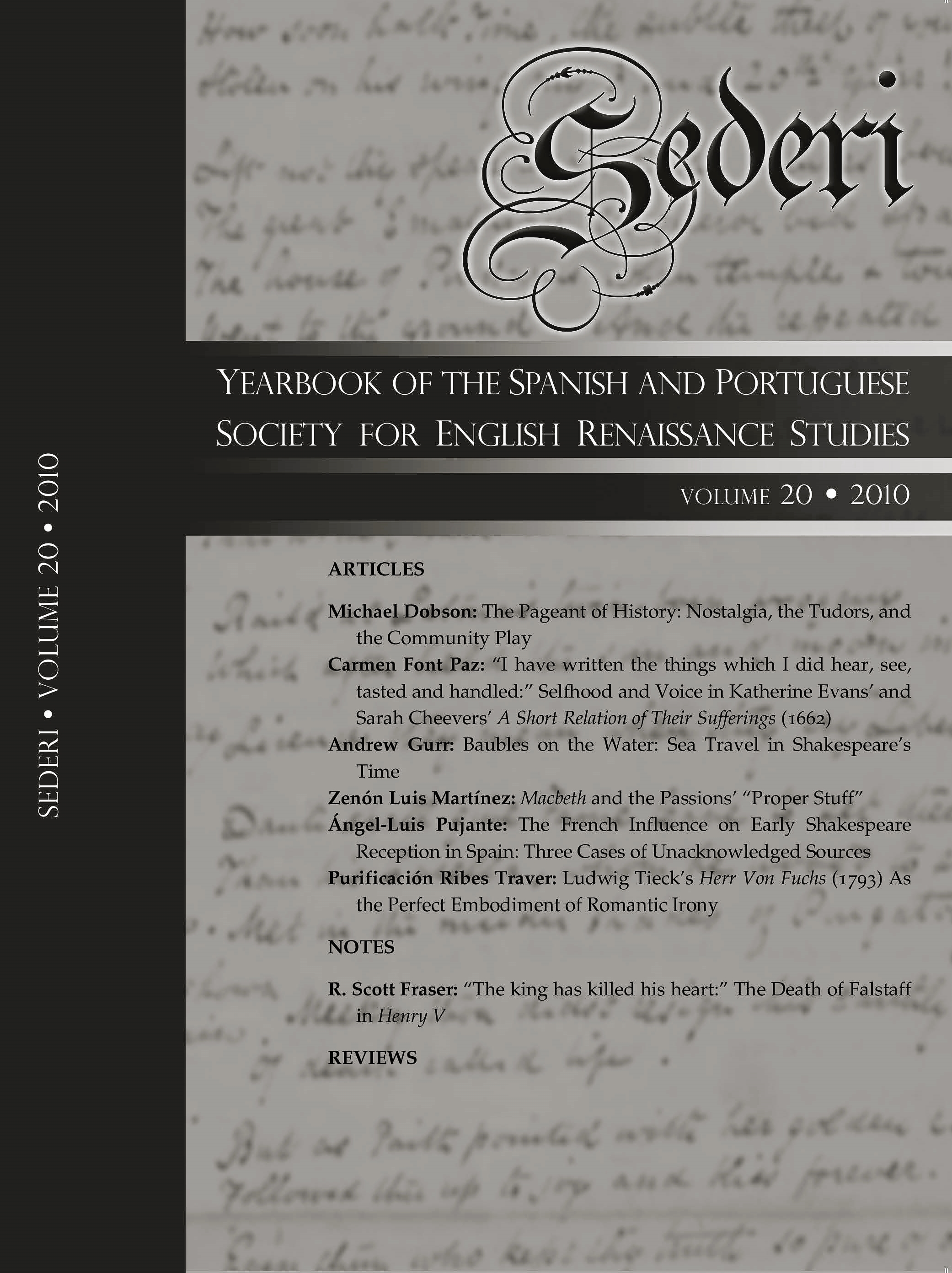“The king has killed his heart:” The Death of Falstaff in Henry V
Keywords:
Shakespeare, Falstaff, Henry V, Will KempAbstract
Even with the multitude of religious, political, social and gendered readings of the character, critics have invariably (and understandably) tended to focus most often on the events leading up to and including the rejection scene in 2 Henry IV, and have given far less attention to the report of his death in Henry V. In light of criticism concerning the relationship between Falstaff and the actor Will Kemp, as well as the roles of the stage Vice and clown, this essay will focus on the report in an attempt to reinterpret it and its importance for the play as a whole. As will be seen, in performance it actually formed an integral part of an iterative process that would have served to problematize the presentation of kingship in Henry V on the early modern stage.
Downloads
Downloads
Published
Issue
Section
License
The copyright holder of the published contributions is SEDERI.The hardcopy and an open-access version of the journal will be published simultaneously. The issues will be available online in the SEDERI website (http://www.sederi.org/yearbook/) and other repositories that have signed an agreement with SEDERI.
The authors who publish with this journal agree to the following terms:
a) SEDERI retains copyright of the essay.
b) If the author wishes to republish or rewrite the essay for another journal, or include the essay published in SEDERI in their personal repositories, or in any other way, they should contact the editors to obtain permission to do so. This will entail citing SEDERI as the original source and sending the editors a copy of the new version, or the link to the website, in case of online publishing.
The author(s) hereby warrant(s) that:
a) The essay submitted for publication is an original creation and does not infringe any copyright or property right of another journal, author or publisher.
b) The essay submitted for publication has not been previously published, whole or in part, and is not being considered for publication elsewhere.
c) Written permission has been obtained for any material from other sources included in the essay submitted for publication.




